near-death experiences

Shermer and Junger discuss: his near-death experience and his curent beliefs • NDEs and OBEs • hallucinations • altered states of consciousness • sensed presence effect • sleep paralysis • why there is no “proof” of an afterlife • living forever • belief in life after death • empirical truths vs. mythic truths • longevity and how to live longer.

hermer and Koch discuss: “subjective experience” • the author’s near-death experience changed him • the difficulties of materialism/physicalism • a fundamental theory of consciousness that explains subjective experiences in objective measures • designing a “consciousness detector” for unresponsive patients • why magic mushrooms and Ayahuasca are of so fascinating to neuroscientists • how our minds are shaped by our beliefs, prior experiences, and intentions • insights crucial to those suffering from anxiety, low self-esteem, post-traumatic stress, and depression. • the…
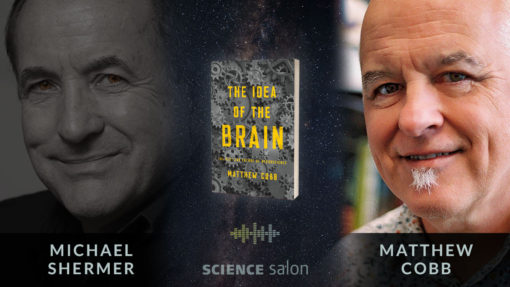
In Science Salon # 115, Michael Shermer speaks with scientist and historian Matthew Cobb about his book The Idea of the Brain: The Past and Future of Neuroscience which traces how our conception of the brain has evolved over the centuries.
In Science Salon # 115, Michael Shermer speaks with scientist and historian Matthew Cobb about his book The Idea of the Brain: The Past and Future of Neuroscience which traces how our conception of the brain has evolved over the centuries.
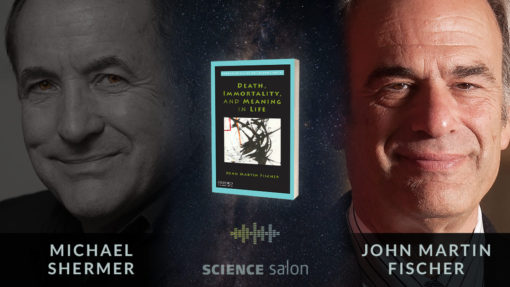
In Science Salon # 95 Michael Shermer speaks with Distinguished Professor of Philosophy John Martin Fischer about his book Death, Immortality, and Meaning in Life — a brief yet in-depth introduction to the key philosophical issues and problems concerning death and immortality.
In Science Salon # 95 Michael Shermer speaks with Distinguished Professor of Philosophy John Martin Fischer about his book Death, Immortality, and Meaning in Life — a brief yet in-depth introduction to the key philosophical issues and problems concerning death and immortality. PLUS: Skeptic Magazine 24.4 is available today. Find out who says the Earth is flat, and why.
In Science Salon # 47, Dr. Michael Shermer speaks with Dr. Susan Blackmore about: how science can test subjective mystical experiences; memes and tremes; free will and determinism; the hard problem of consciousness, out of body experiences, near-death experiences, and God.
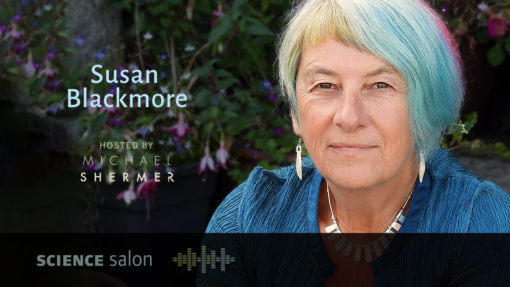
In Science Salon # 47, Dr. Michael Shermer speaks with Dr. Susan Blackmore about: how science can test subjective mystical experiences; memes and tremes; free will and determinism; the hard problem of consciousness, out of body experiences, near-death experiences, and God.
In this week’s eSkeptic, Sebastian Dieguez, cognitive neuroscientist at the University of Fribourg, Switzerland, reviews The Myth of an Afterlife: The Case against Life after Death, edited by M. Martin and K. Augustine.
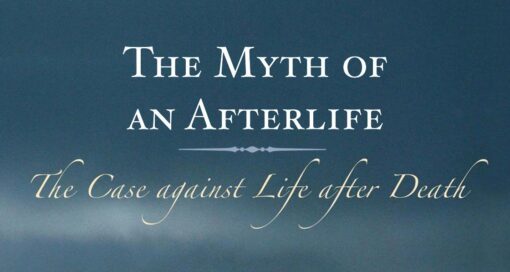
Given the current success of neuroscience in establishing the neural basis of consciousness and thought, is it still honest to claim that we simply don’t know “what comes after”? Cognitive neuroscientist, Sebastian Dieguez, of the University of Fribourg, Switzerland, reviews The Myth of an Afterlife: The Case against Life after Death, edited by M. Martin and K. Augustine.
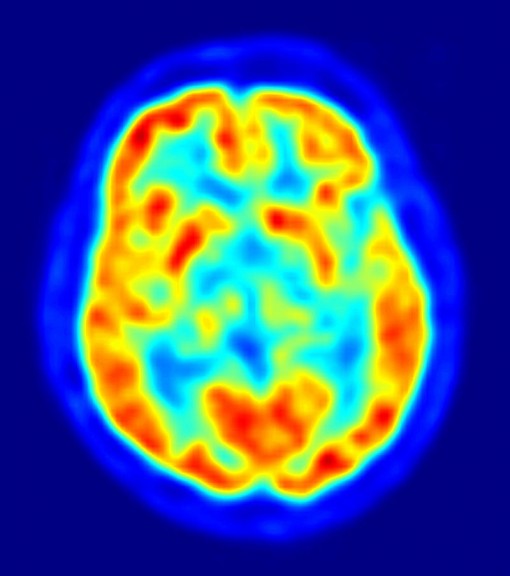
Mike McRae considers the possibility that recent Near Death Experience research reveals the existence of conscious, supernatural awareness in patients during cardiac arrest.
Donald Prothero explains that while Dr. Eben Alexander claims that he visited heaven while in a coma, awkward details cast serious doubt on his story.
In this week’s eSkeptic: upcoming Lectures at Caltech: Richard Dawkins, Sam Harris, more… feature article: Broadcasting from the Great Beyond podcast double header: Skepticality and MonsterTalk follow Michael Shermer: Our Neandertal Brethren follow Daniel Loxton: The Value of Vertigo Announcing the New Seasonof Lectures at Caltech Mark your calendar! The Skeptics Society is pleased to […]
This debate between Deepak Chopra and Michael Shermer came about after the widely read and referenced debate the two had last year on the virtues and value of skepticism. Deepak and Michael thought it would be stimulating to have a debate on the topic. Michael read Deepak’s book and goes first in the debate, offering his assessment of the “proofs” presented in Deepak’s book, then Deepak responds.
In this week’s eSkeptic, Sebastian Dieguez presents a rejoinder to Mark Crislip’s “Near Death Experiences & the Medical Literature” (eSkeptic June 18th, 2008), calling for a redefinition of NDEs.
In this week’s eSkeptic, infectious Disease doctor Mark Crislip dissects some medical research on near death experiences.















